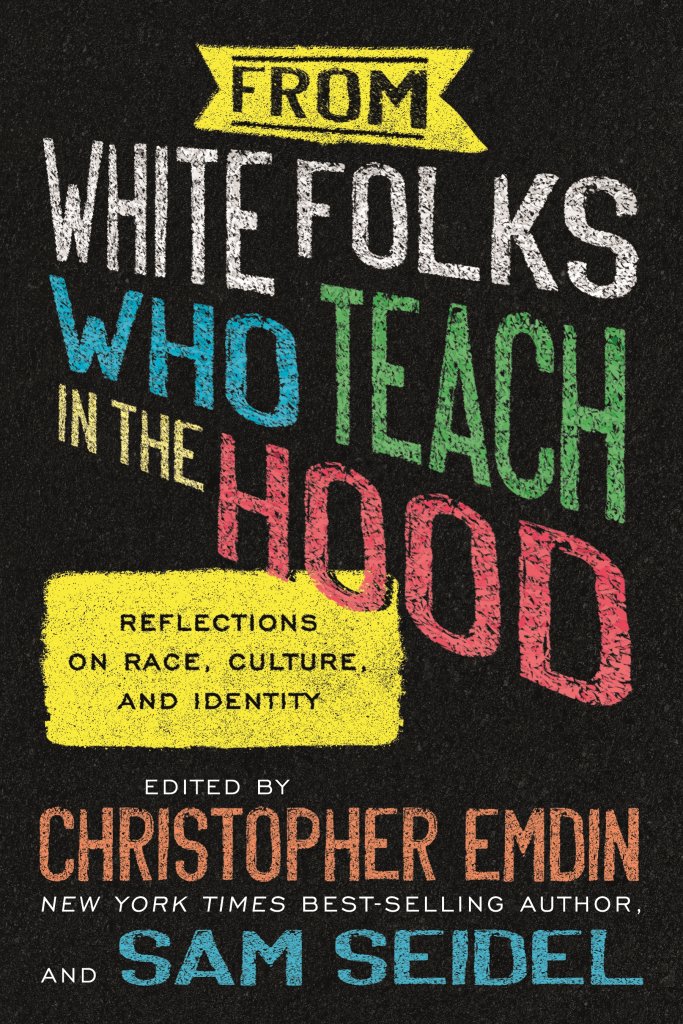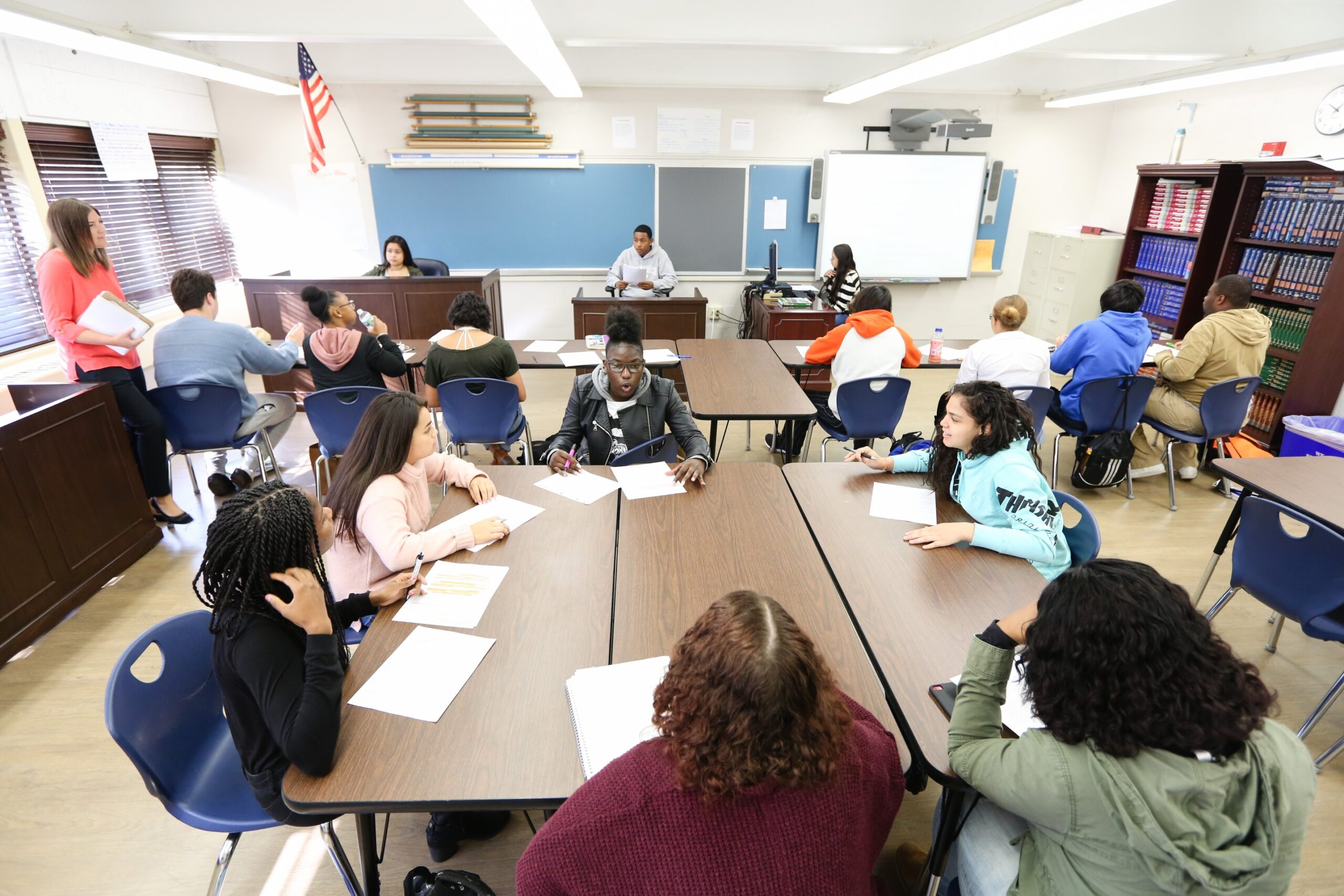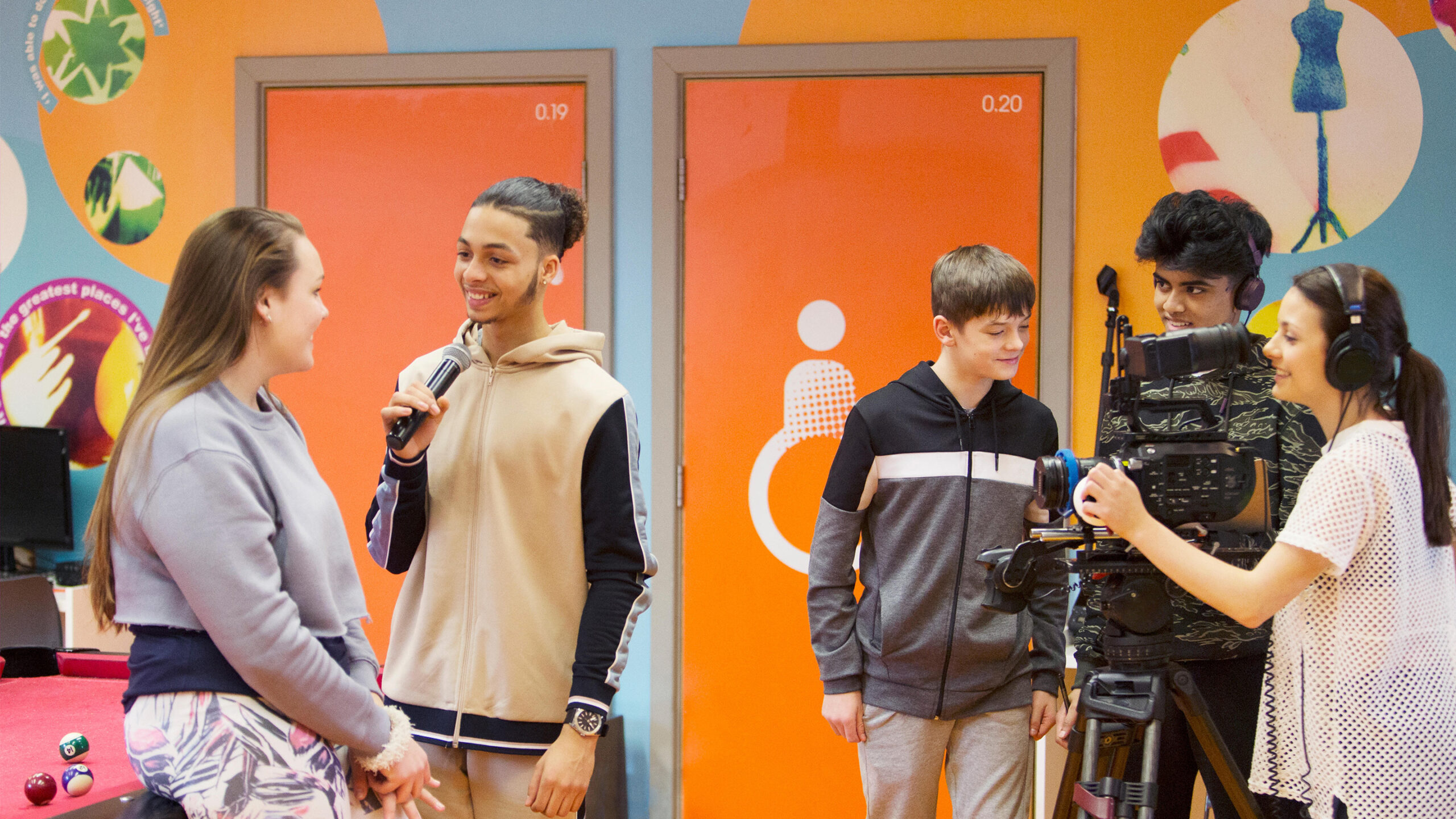
Culturally Responsive Mission-Based totally Finding out | Edutopia
[ad_1]
Metropolis-As-Faculty is among the many oldest experiential-learning packages inside the New York Metropolis public school system. The school’s inhabitants consists of change school college students from all 5 boroughs. The admissions employees is deliberate, and whereas the tactic should not be glorious, the aim is to create a pupil physique that represents communities all through city, significantly these which may be underserved, equivalent to immigrants, multilingual learners, members of the LGBTQIA+ neighborhood, teen dad and mother, and BIPOC school college students. As quickly as admitted, school college students spend time learning skills at internships all through city, and the rest of their training takes place in-house with educators in class rooms.
An significantly distinctive issue inside the Metropolis-As-Faculty customized is requiring school college students to be bodily present inside the establishing to register for his or her very personal tutorial experiences. They’ve to satisfy each teacher and internship coordinators to permit them to check additional regarding the experiences sooner than registering. Faculty college students select their packages and internships along with the educators with whom they like to check, a course of that gives them additional administration over their coaching. An algorithm can shortly calculate a schedule to satisfy graduation requirements, but it surely absolutely fails to supply school college students and educators a chance to get to know one another and to discuss hottest learning varieties and content-delivery methods.

Courtesy of author
Visiting the school on a registration day may seem like a wierd social experiment. Nonetheless, we who work there check with the prolonged traces of students flowing into the hallways and limitless one-on-one conferencing as “managed chaos.” I dare to call it magick on account of inside the midst of a really busy registration interval, the administration course was (re)born.
In the meanwhile, my English programs have been already full. I was diligently creating my rosters after I overheard a dialog between the school’s school counselor and a Black pupil patiently prepared for his flip to register for a class.
Their exchanges appeared lighthearted, nothing larger than frequent chitchat, nonetheless then the dialog grew additional important. The scholar expressed frustration with “stop-and-frisk” tensions rising between police and Black male residents in his neighborhood. My colleague politely said, “I can see this upset you. Have you ever ever thought-about volunteering or chatting with someone who can help make some change?” The youthful man smiled and said, “Miss, all due respect, nonetheless with what time? I purchased school and work. I need I’ll, nonetheless I can’t. Not till it’s a class which will get me some credit score rating to get out of highschool.” I perked up and interjected, “What if it was?” The scholar appeared stunned.
My colleague turned her head and grinned. She knew my question was sincere. The scholar smirked and shook his head in disbelief. I requested, “What ought to you could take a class throughout which you volunteer to do points in your private neighborhood, nonetheless you earned tutorial credit score rating? You’d current up? You’d take it? You’d want to do that?” The youthful man shrugged and said, “I assume, nonetheless do you’ll have that?” My coronary coronary heart sank. “No,” I murmured. He shook his head as if he understood and outlined that he was almost accomplished with incomes his credit score to graduate. I thanked him for talking and went once more to finalizing my rosters.
The dialog ended there, nonetheless the idea the scholar sparked began to crystallize. One different colleague inside the office, JP, a veteran math teacher, walked over to me on the end of the day. He said, “You perceive, I heard your dialog. I used to indicate a class known as administration, and we did nearly what you might have been talking about.”
No matter JP’s self-proclaimed “white man from the backwoods of Maine” persona, he spent his whole career—over twenty years of teaching—inside the superior system of New York Metropolis public faculties and wasn’t jaded. I was a youthful Italian American woman and had spent my life in New York Metropolis and its surrounding suburbs. I attended public faculties. I grew up in a multigenerational household; my single mother and my grandparents raised my older brother and me. JP and I’ve been completely totally different, nonetheless we’ve been two white educators who believed school college students’ voices belong in all school-wide decision-making. JP knew the importance of getting the adults, significantly white adults, to maneuver out of the way in which wherein so kids, significantly BIPOC youngsters, might develop their very personal coaching. I shared his imaginative and prescient.
We immediately began working. I grabbed a licensed pad and a pen. We sat on the desk inside the office, and I requested JP to tell me what the administration class was and why it disappeared. He talked regarding the course’s student-centered philosophy and student-created duties. He spoke regarding the administration class as a technique to get school college students involved of their very personal neighborhoods. The course fell by the wayside with pressure from No Teenager Left Behind and state necessities altering what constituted an “tutorial” experience.
I knew that if we might exhibit how the course would help school college students develop standards-aligned skills, we would have a powerful chance to produce a course throughout which school college students would completely take the reins. We brainstormed, dreaming of what it might very effectively be. We agreed to talk to varsity college students coming inside the subsequent day for registration. We agreed that their enter on the course outline mattered primarily essentially the most. We agreed that school college students, regardless of whether or not or not they chose to register for the class (if it was even permitted), may be these to kind the course. JP and I started with the subsequent outline:
- All duties and ideas are pupil generated.
- All duties and ideas ought to be associated to a pupil’s lived experience and/or have to affect constructive change in a single factor affecting their communities and their lives.
- Faculty college students can’t select duties throughout which they infuse themselves, their beliefs, or their ideas into an space that isn’t part of their lived experience.
- Any “exterior” enterprise requires school college students and educators to conduct thorough evaluation on any organizations or leaders. Faculty college students may be required to work fastidiously with someone with lived experience on the topic materials and allow that “skilled” to information us and knowledge us inside the enterprise.
- Faculty college students ought to create a proposal (written or verbal) and present their enterprise ideas to not less than one one different. Proposals must deal with the subsequent: the enterprise focus, why school college students chosen the enterprise, ideas for implementation, school college students’ hopes, the enterprise’s sustainability, constructive and doubtlessly unfavourable enterprise impacts, attainable roadblocks, and the way in which the enterprise connects to varsity college students’ lived experience(s).
- The work is created in small groups or with the complete class, nonetheless it is in the long run the students’ choice in determining which duties to complete or combine.
- We, the white educators inside the room, ought to keep facilitators and consultants solely. We can’t take the lead. We help school college students’ efforts and help with logistics.
- It’s okay if duties do not come to fruition. “Failure” for a enterprise to materialize does not equate to course failure.
- Reflection is an integral part of our lived experiences, and all class people, along with the educators, will replicate upon what did and didn’t work and synthesize why and the way in which we’ll attempt to make the enterprise work with completely totally different methods.
The following day, JP and I requested school college students for enter. Various said they favored our ideas, nonetheless the inevitable question arose: What tutorial credit score might they earn? I outlined explicit written and oral communication necessities and tied them to the outline’s requirements. JP and I spent the morning dashing between locations of labor, taking suggestions from school college students and together with their ideas to our outline.
Our pleasure grew. We knew we’ve been on the verge of 1 factor explicit and, most importantly, one factor that authentically associated school college students’ learning to using their voices and skills to enact precise change of their lives.
JP and I revised our proposal with the students’ suggestions. We outlined step-by-step templates to help school college students with evaluation methods, planning, contact and meeting protocols, and customary tricks to facilitate neighborhood establishing and open communication. We made an appointment to meet with our principal, Antoniette Scarpinato. After we walked into her office, she appeared on the 2 of us and said, “What on earth did you two offer you?” She was half joking nonetheless curious. JP nudged me to speak first. I outlined the complete course and the way in which it occurred, and her wry smile softened with sincerity. After presenting our detailed outline, the course was permitted with the subsequent circumstances:
- Faculty college students ought to be supervised at all times, significantly if we’re touring off school grounds and/or working with most people.
- All written communication between school college students and people exterior of the school ought to be pre-approved. Verbal communication between school college students and people exterior of the school ought to be supervised by a school educator or employees member.
- Don’t screw it up.
The following registration cycle, the administration course made the guidelines. Administration permitted one half. All through registration, school college students principally requested regarding the course content material materials. JP and I replied, “What would you prefer it to be?” or “What do you want to do this no individual else in your neighborhood has given you a chance to do?” Some school college students shrugged with uncertainty. Others lit up with pleasure. Various walked away saying the class gave the look of an extreme quantity of labor. We revered all responses. Thankfully, the class was full by the tip of the first registration day.
As quickly as class began, the students, JP, and I labored on neighborhood agreements. We talked about how we wished to talk with each other. Faculty college students required honesty, respect, and help for each other, even after they disagreed.
We talked regarding the kinds of duties we’d have and learn to keep each other accountable. Being present and admitting when you want help made the best of the guidelines. The students agreed {{that a}} reflection after each enterprise made sense to help us synthesize our experiences and doubtlessly perform a springboard for future class people. JP and I made it clear that we’ve been to be held equally accountable for these agreements.
When the first spherical of duties occurred, school college students pitched ideas individually after which broke into small groups to talk with one another about learn to make these duties happen. Not every pupil pitched a enterprise. Some opted to help others with their pitches. JP and I listened and took notes. Our job was to doc each half and browse it once more to the students on the end of each class.
Afterward, the students determined the next class meeting’s focus. The students took their time to weigh their selections:
- They could work in small groups to complete all people’s proposed enterprise inside the transient time we had collectively.
- They could select only a few duties and have larger teams work on them.
- They could rally behind one enterprise as a class and supplies it our full consideration.
The students talked about these selections for two class courses. Lastly, they obtained right here to a consensus: they agreed to work collectively on one enterprise to make it successful.
The scholar who pitched the idea turned the enterprise “chief.” It was her job to work collectively along with her teammates to plan their enterprise from beginning to end. The employees brainstormed and typically argued passionately about which ideas would work best.
That first enterprise centered on contacting native meals outlets to help complement the native meals banks in Brooklyn. On the time, our nation was reeling from a recession, and meals banks all through city have been overwhelmed. The scholar who pitched the enterprise labored in an space grocery retailer and was bothered by seeing groceries thrown away as they approached—nonetheless sooner than they reached— their expiration dates.
She knew school college students inside the class had experiences using meals monetary establishment corporations and wished to confirm the nice meals reached households in need. A pupil inside the class with meals monetary establishment experience said that no matter volunteers’ kindness, she always wished to purchase her private objects. She had relations with effectively being, cultural, and religious dietary restrictions, and he or she knew totally different households who used the meals banks doable did too. She launched this concern to the class, and after only a few disagreements, school college students obtained right here up with the “buying” model: providing of us with empty baggage to “retailer” for his or her very personal objects on the meals monetary establishment.
Properly sooner than this enterprise was full, JP and I agreed that the students achieved success. They’ve been collaborating. They’ve been talking. They’ve been problem-solving. Faculty college students labored collectively to further humanize the meals monetary establishment experience.
After the scholar who labored at a grocery retailer spoke to her supervisor, he provided to donate unexpired objects. One different pupil from the neighborhood spoke to the actual individual in value on the native meals monetary establishment and purchased them to evolve to run a trial with the model new model. With out hesitation, the students wrote up a proposal, made an appointment with our school administration, and purchased our school to host the meals monetary establishment’s “buying” event on a Saturday.
The event was successful. Loads meals was accessible that people even drove in from New Jersey to decide on up leftover meals after someone inside the neighborhood known as a radio station and the DJ made an announcement regarding the event. A bunch of students was answerable for asking prospects one anonymous “survey” question regarding the day’s buying experience. The attendees all said they favored having the prospect to purchase their very personal objects. The following week, the class celebrated their success and took time to duplicate. Faculty college students agreed the enterprise’s non-public connection and native focus legitimized their efforts. They agreed that they didn’t need “outsiders’’ to return in and “clear up points” with out completely consulting the neighborhood after which leaving. They took possession of it. It was theirs.
[ad_2]
Provide hyperlink


